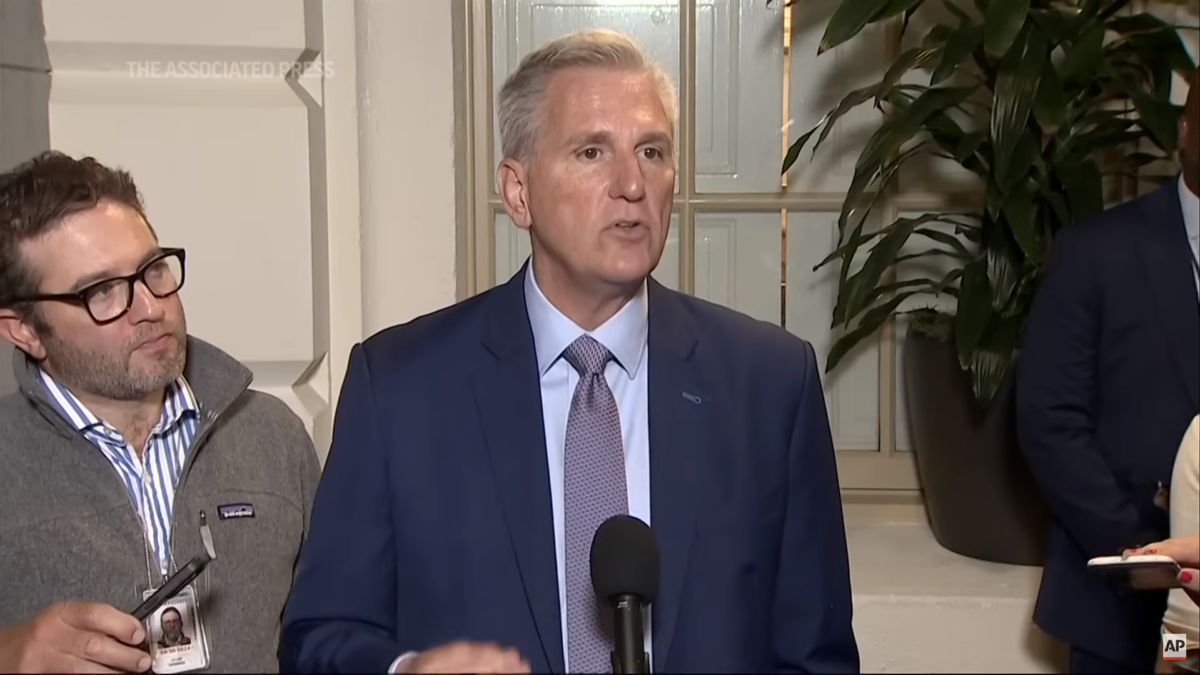The U.S. deficit has hit its highest point in seven years, at $984 billion in the 2019 budget year, approximately a 26 percent increase from 2018 and a 48 percent increase from 2017, according to the U.S. Department of Treasury on Friday. The deficit is the difference between how much the government spends and how much it takes in taxes.
While headlines characterize the soaring deficits in recent years as a product of the Trump administration’s passage of large tax cuts, Americans’ addiction to entitlements, including the passage of the Affordable Care Act, are the true culprits.
Although the administration’s tax cuts did fall short of bringing in expected revenues through higher economic activity, President Barack Obama contributed an additional $10 trillion to the national debt with higher interest rates on his administration’s debt than previous administrations, in addition to passing the unfunded and unaffordable Affordable Care Act. Trump would have had to cut $1 trillion from the federal budget just to break even after Obamacare and begin paying down the nearly $23 trillion in federal debt. $1 trillion is more than 75 percent of the federal government’s entire budget for discretionary spending.
Revenues actually grew slightly higher under Trump, by 3.8 percent, despite massive tax cuts. Largely due to a booming economy, tax receipts rose from approximately $3.3 trillion in 2018 to $3.4 trillion in 2019.
“President Trump’s economic agenda is working: the Nation is experiencing the lowest unemployment rate in nearly 50 years, there are more jobs to fill than there are job seekers, and Americans are experiencing sustained year-over-year wage increases,” Treasury Secretary Steven Mnuchin said in a statement. “In order to truly put America on a sustainable financial path, we must enact proposals – like the President’s 2020 budget plan – to cut wasteful and irresponsible spending.”
The deficit is only expected to continue expanding, exceeding a $1 trillion in the next fiscal year, according to the Congressional Budget Office, while lawmakers are showing no signs of cutting entitlement spending even as it gets closer to openly bankrupting the nation.
Spending on Social Security in fiscal year 2019 surpassed the $1 trillion mark, a 5.7 percent increase from 2018. Medicare spending saw a 10.6 percent hike from $589 billion spent to fund the program in 2018 to $651 billion in 2019. Defense spending also played a major role in contributing to the deficit, with an 8.8 percent jump from 2018 to 2019 to $688 billion spent in 2019.
While entitlement spending continues to soar, the programs’ fiscal solvency grow darker each year with experts expecting the Social Security system’s trust fund to be completely exhausted by 2035 barring another recession between now and then, according to the Committee for a Responsible Federal Budget, a non-partisan budget think tank. Once the fund is depleted, beneficiaries will see 20 percent across-the-board cuts to their benefits without congressional action.
Few Democrats on the presidential campaign trail, however, appear to be very concerned about the nation’s entitlement-drowning finances. Instead, the leftist field of candidates have pushed even more extremely expensive programs.
All candidates have pushed for some version of dramatically expanding the Affordable Care Act or have outright proposed socialized medicine through “Medicare for All.” They say they want to soak the rich to fund these proposals, but according to reports from the independent Committee for a Responsible Budget and the conservative Heritage Foundation, it would be mathematically impossible to fund socialized medicine solely by confiscating money from the nation’s wealthiest taxpayers.
Sen. Bernie Sanders of Vermont has acknowledged that middle-class taxes would have to go up to pay for his single-payer health-care program. Sen. Elizabeth Warren of Massachusetts has repeatedly dodged the question, provoking criticism on the debate stage earlier this month.









